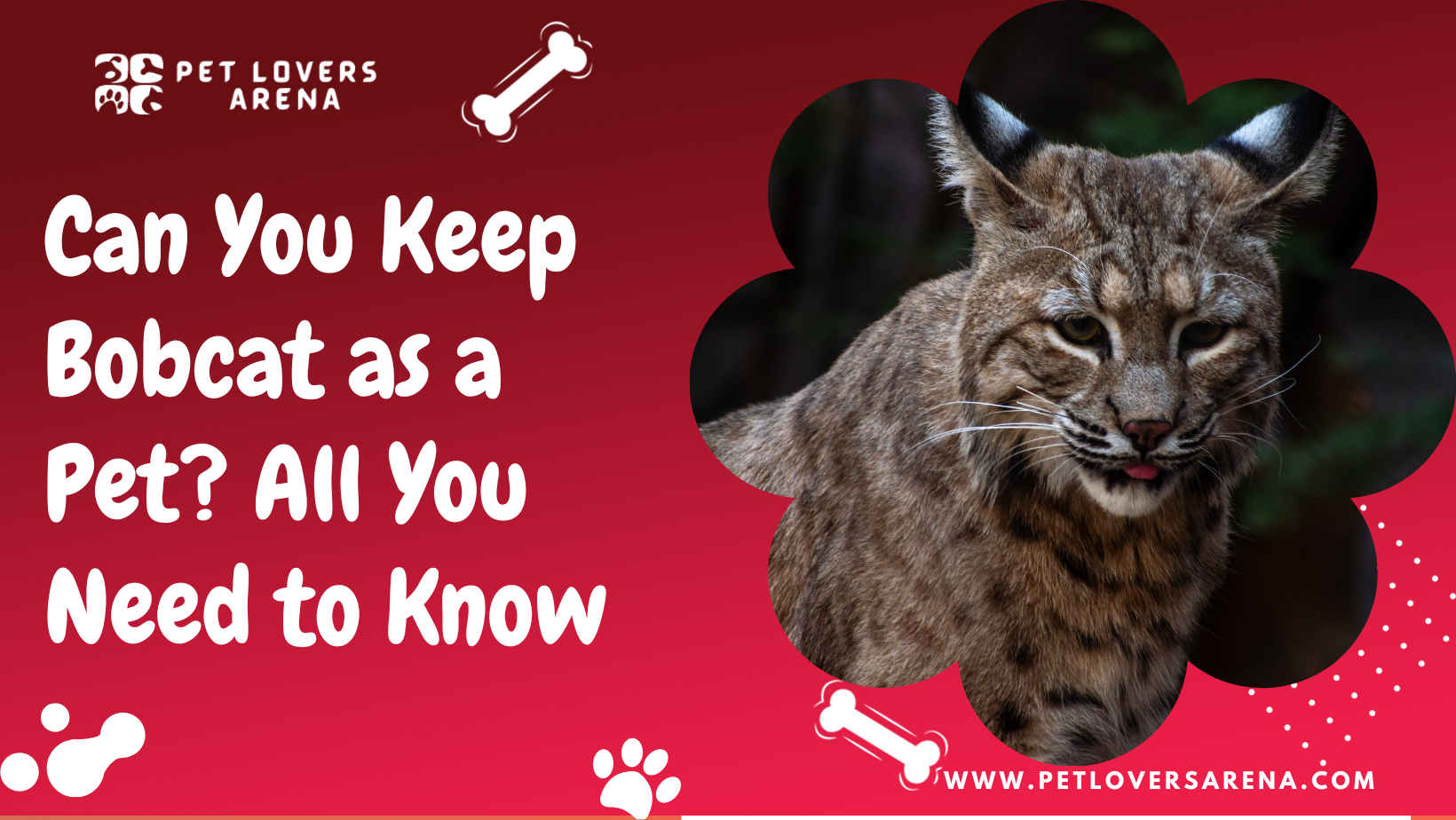Bobcats are medium-sized North American cats native to some parts of Canada, Mexico, and the United States. They are wild animals with unique diets, behaviors, and living arrangements. If you are considering owning a bobcat, providing them with a spacious and secure environment is important.
They need a large enclosure with plenty of hiding places and high perches. Bobcats are quiet animals that stay away from humans, but you can sometimes spot them lingering in the suburbs. If you are considering owning a bobcat as a pet, there are several things you need to know, and this article will guide you through them all, so begin reading it.
Key Takeaways
- Bobcats are wild animals and not suited to living in captivity.
- Only a few states allow bobcats as pets with a permit or registration.
- Owning a bobcat as a pet comes with major safety concerns and legalities.
Are Bobcats Friendly to Humans?
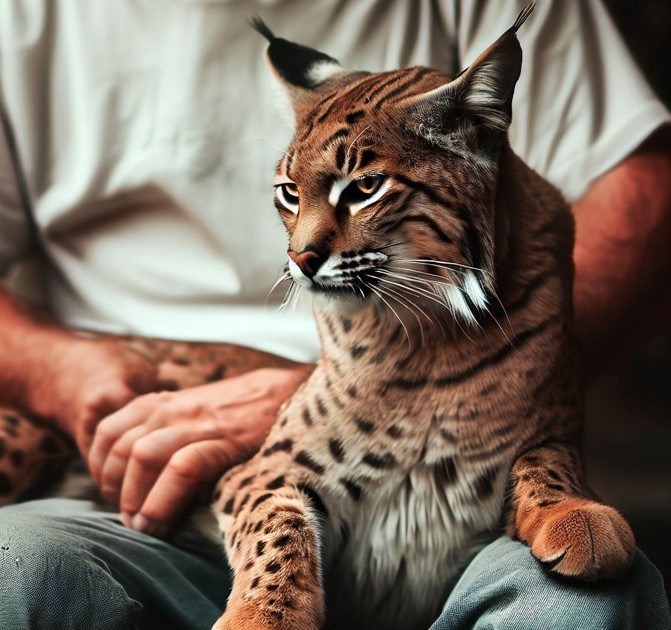
Bobcats are wild animals and are not typically friendly to humans. They are solitary creatures and prefer to keep their distance. While they may be curious about humans, they are not domesticated and can be unpredictable and aggressive. It is important to consider the welfare of the animal and the safety of yourself and others before considering owning a bobcat.
Is It Legal to Keep a Bobcat as a Pet?
Keeping a bobcat as a pet is illegal in many states and countries, and owning an exotic pet can result in legal consequences and fines. Therefore, it is important to research and understand the laws and regulations in your area regarding the ownership of bobcats and other exotic animals.
It is also essential to obtain any necessary permits and licenses before acquiring a pet bobcat. Some states will need registration or special permission to own a bobcat, which means they will be asking for a breeding permit or exotic pet permit that will be subjected to inspection of the house at a scheduled time just to ensure whether the bobcat is getting proper care and attention or not.
States where you can keep Bobcats without permission:
- Alabama
- Nevada
- North Carolina
- South Carolina
16 States that allow bobcats as pets:
- Arizona
- Florida
- Delaware
- Indiana
- Maine
- Missouri
- Mississippi
- Montana
- Oklahoma
- North Dakota
- Pennsylvania
- South Dakota
- Rhode Island
- Wisconsin
- Wyoming
- Texas
It is important to note that even if your state allows you to own a bobcat as a pet, there may be additional regulations and restrictions in place. Additionally, animal control may have specific requirements for the enclosure and care of your bobcat.
Failing to comply with these laws and regulations can result in hefty fines, the confiscation of your pet, and even criminal charges. Therefore, it is crucial to do your research and ensure that you are following all applicable laws and regulations before bringing a bobcat into your home.
States where owning a Bobcat is illegal are:
- Alaska
- Arkansas
- California
- Colorado
- Connecticut
- District of Columbia
- Georgia
- Hawaii
- Idaho
- Illinois
- Iowa
- Kansas
- Kentucky
- Louisiana
- Maryland
- Massachusetts
- Michigan
- Minnesota
- Nebraska
- New Hampshire
- New Jersey
- New Mexico
- New York
- Ohio
- Oregon
- Tennessee
- Utah
- Vermont
- Virginia
- Washington
- West Virginia
What Are The Major Concerns of A Bobcat Owner?
Keeping a bobcat as a pet is a high-maintenance and risky endeavor that requires careful consideration and preparation. Bobcats are wild animals, and keeping them as pets can pose significant safety concerns for both the owner and the animal. Here are some major safety concerns to take into account while keeping a bobcat as a pet:
1. Food for your Bobcat
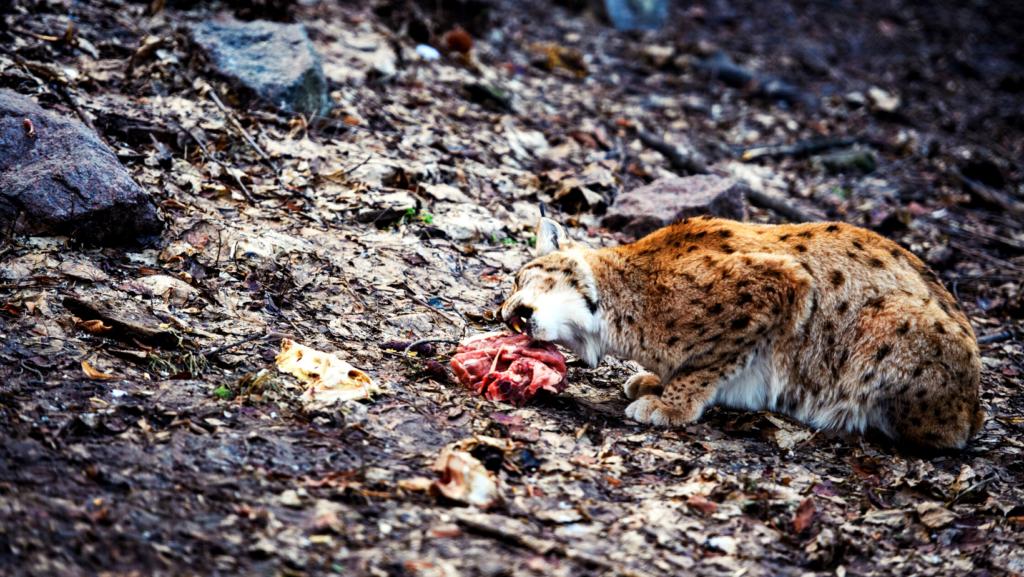
Bobcats are carnivores and require a diet high in protein. They eat a variety of prey, including rabbits, rodents, birds, and reptiles. As a pet owner, it is important to provide them with a balanced diet that contains raw meat, such as chicken or beef, as well as bones and organs.
You can also feed them commercial raw food diets designed explicitly for bobcats. It’s important to ensure that the meat is fresh and free from any harmful bacteria. You can also feed them whole prey, such as mice, rats, or quail. Feeding whole prey is a great way to provide your pet bobcat with a balanced and natural diet.
If you’re uncomfortable feeding bobcats raw meat or whole prey, you can also feed them canned cat food. Look for high-quality canned cat food that is high in protein and free from fillers and artificial ingredients. You can also supplement your diet with raw eggs and small amounts of fruits and vegetables. It’s important to provide bobcats with fresh water at all times. You can use a large, heavy bowl that is difficult for them to tip over. Make sure to clean the bowl regularly to prevent the growth of harmful bacteria.
2. Physical Safety
Bobcats are powerful animals with sharp claws and teeth that can cause serious injury or even death. They are also very agile and can climb, jump, and run at high speeds. Therefore, it is important to ensure that your bobcat is safely contained in a secure enclosure.
The enclosure should also have a sturdy roof to prevent the bobcat from escaping or climbing out. Additionally, it is essential to keep your hands and face away from the animal’s mouth and claws, especially during feeding and cleaning.
Children are naturally curious and may approach a bobcat out of curiosity or playfulness. It is important to keep children away from the bobcat and supervise them when they are playing outside. Ensure your child understands the dangers of approaching a bobcat and the importance of keeping a safe distance.
3. Health and Hygiene
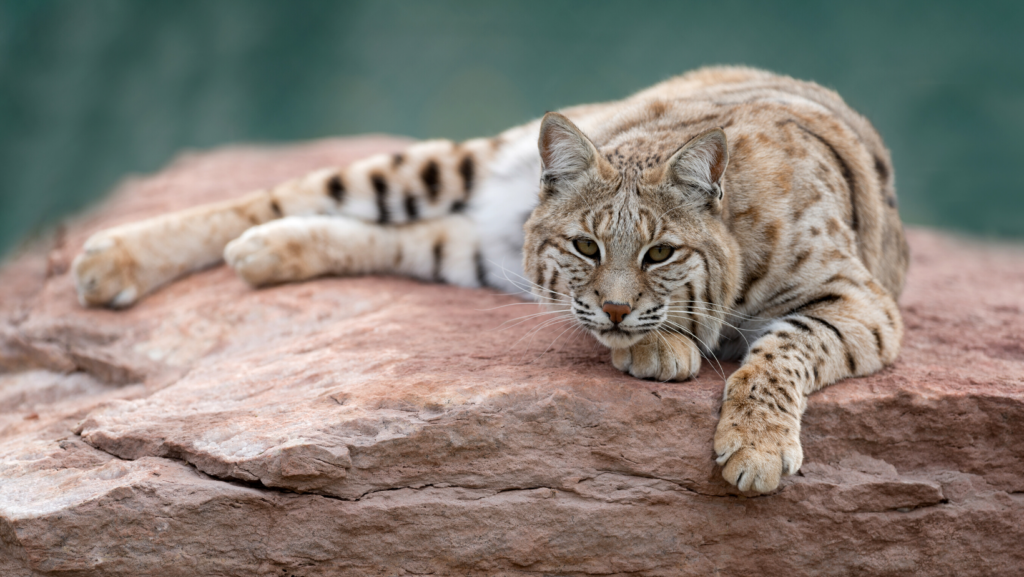
Bobcats can carry various diseases and parasites that can be transmitted to humans and other animals. Therefore, it is crucial to keep bobcats up to date on all necessary vaccinations and veterinary check-ups.
You should also maintain good hygiene practices, such as washing your hands thoroughly before and after handling your pet and cleaning the enclosure regularly to prevent the buildup of bacteria and germs.
4. Disease
One of the biggest risks of owning a bobcat is the potential for disease transmission. Bobcats can carry a variety of diseases that can be transmitted to humans and other animals. It’s important to take steps to protect yourself and your family from exposure to disease. This may include avoiding contact with your bobcat’s bodily fluids, such as urine and saliva.
5. Veterinary Care
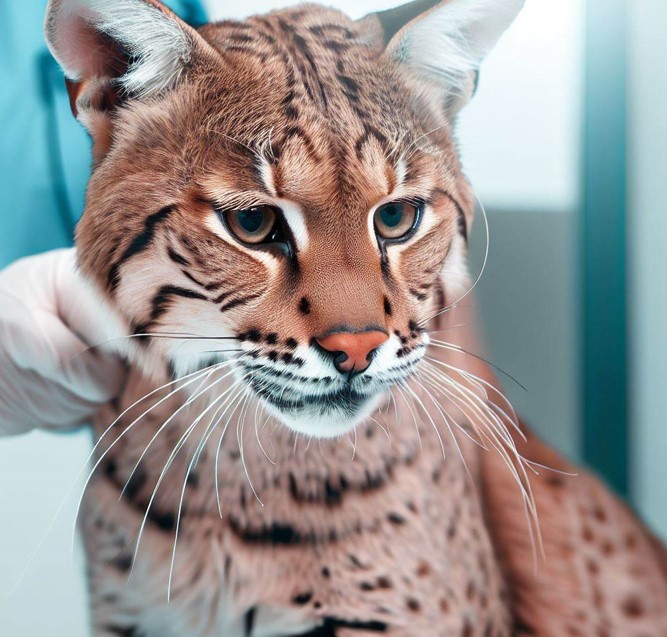
Another important consideration when owning a bobcat is veterinary care. Bobcats require specialized care from a veterinarian who is experienced in treating wild animals. This may include regular checkups, vaccinations, and treatment for any illnesses or injuries. It’s important to find a veterinarian who has experience with bobcats and who can provide the care your pet needs.
6. Vaccination
Vaccination is an essential part of keeping your bobcat healthy. Your veterinarian will recommend a vaccination schedule based on your bobcat’s age, health, and lifestyle. Some of the vaccines your bobcat may need include rabies, feline distemper, and feline leukemia. It’s important to keep your bobcat up-to-date on all necessary vaccinations to protect them from serious diseases.
Behavioral Concerns
When it comes to keeping a bobcat as a pet, there are several behavioral concerns that you should be aware of. These concerns include aggression, unpredictability, noise, and instincts and behaviors.
1. Aggression
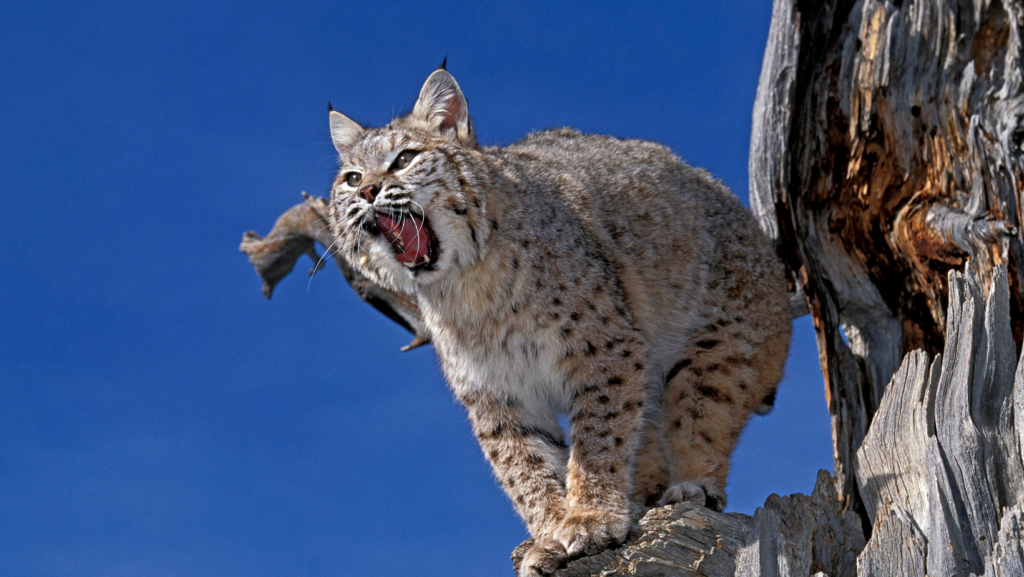
Bobcats are known to be aggressive animals, especially when they feel threatened or cornered. As a result, it is important to be aware of your bobcat’s temperament and to take steps to prevent aggressive behavior.
2. Unpredictability
Bobcats are wild animals, and as such, they can be unpredictable in their behavior. One minute they may be playful and affectionate, and the next, they may become aggressive or territorial. It is important to be aware of your bobcat’s moods and to take steps to prevent any potential threats or attacks.
3. Noise
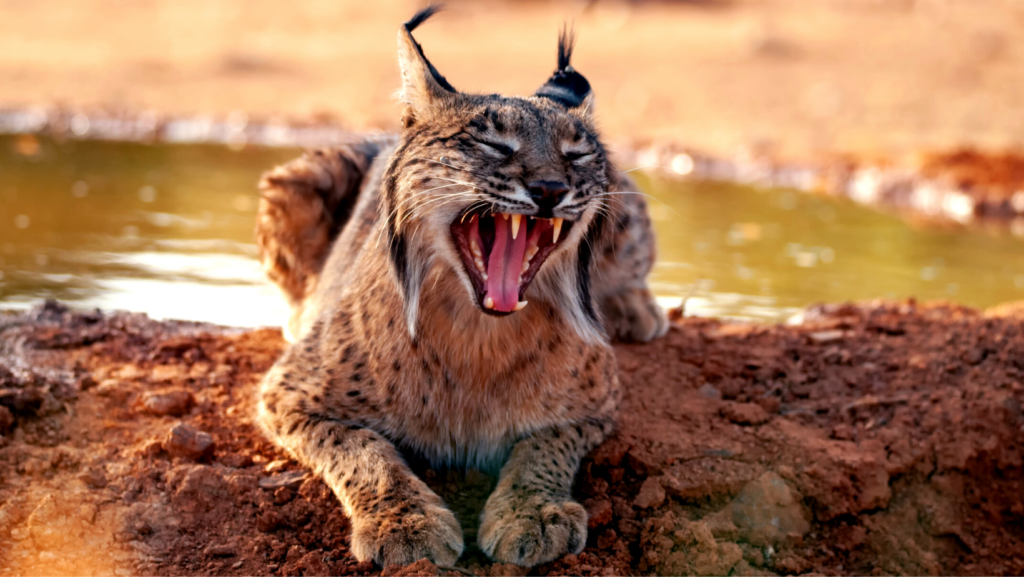
Bobcats are known to be noisy animals, especially during mating season. They can make a variety of sounds, including growls, hisses, and screams. If you live in a residential area, it is important to be aware of your bobcat’s noise level and to take steps to prevent any potential disturbances.
4. Instincts and Behaviors
They are territorial animals that mark their territory with urine and feces, and they have a strong vision, a keen sense of smell, and good hearing that can lead them to attack small animals.
FAQ’s
Bobcats are not cheap pets. Depending on the breeder and the state, they can cost anywhere from $1,500 to $20,000. In addition to purchasing a bobcat, there are ongoing expenses such as food, veterinary care, and enclosure maintenance.
No, keeping a bobcat with other household pets is not recommended. Bobcats are solitary animals and may see other pets as prey. They are also territorial and may become aggressive towards other animals.
In most states, keeping a pet bobcat without a permit or registration is illegal. In addition to facing legal consequences, owning a bobcat without the proper licenses and training can be dangerous for both the owner and the animal. It is important to follow all state and local laws regarding the ownership of exotic animals.
Conclusion
In conclusion, while it is legal to own a bobcat in some states with a permit or registration, it is not advisable to keep them as pets. Bobcats are not like domestic house cats. In summary, while owning a bobcat as a pet may be tempting, it is not a good idea. Bobcats are wild animals that should be left in their natural habitat. If you encounter a bobcat in the wild, giving them space and not approaching them is essential.
Meet Fabian Wright, our guide into the animal realm at PetLoversArena.com. Having served as an Animal Care Specialist for the Ruwenzori Team at the Kansas City Zoo, he prioritizes conserving exotic species by replicating their habitats. Fabian aspires to share captivating stories of creatures, big and small, through PetLoversArena.com.

